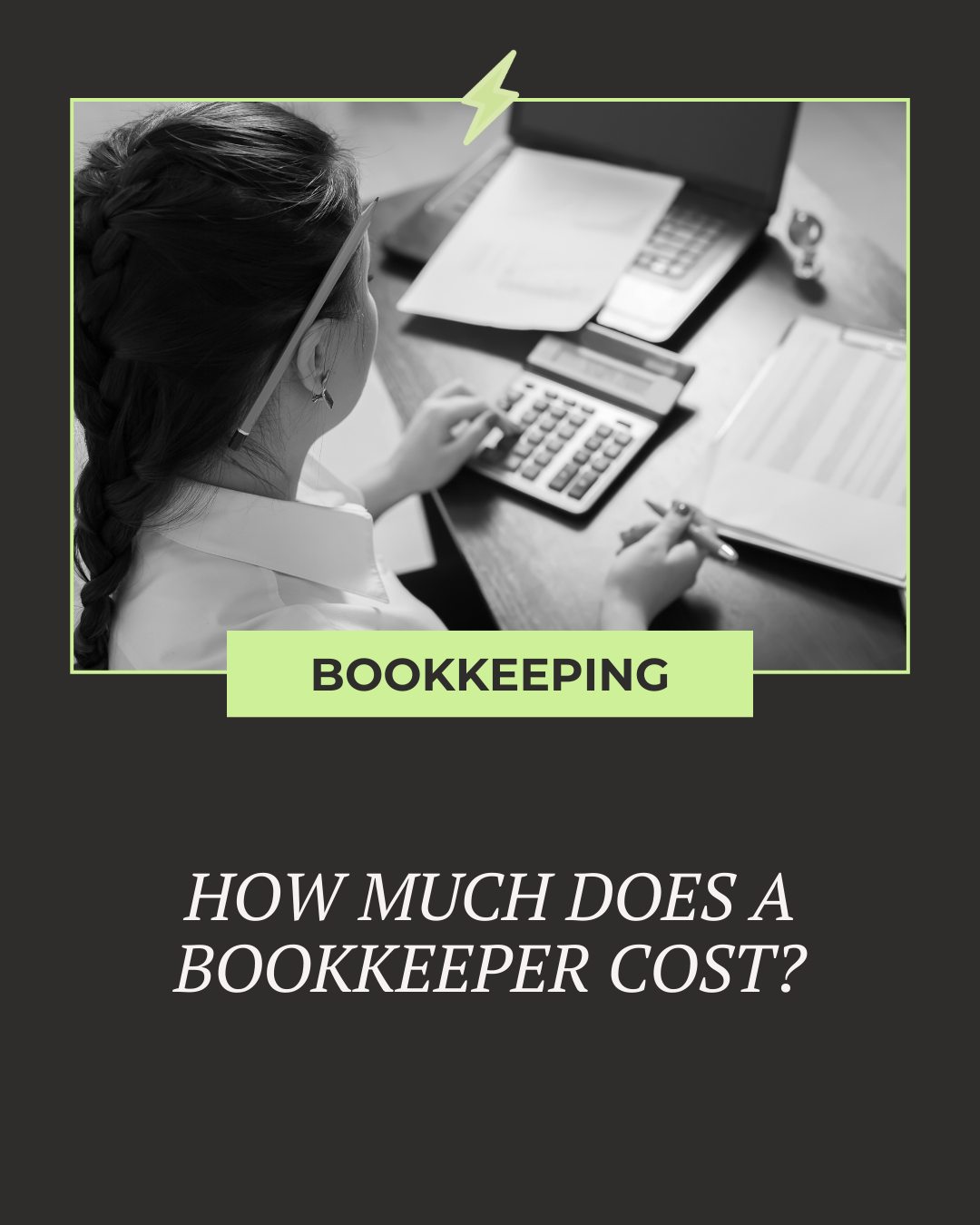How Much Does a Bookkeeper Cost?
Hiring a bookkeeper can be a game-changer if you're a business owner, freelancer, or entrepreneur. They help organize your financial records, ensure taxes are prepared on time, and free up your energy to focus on growing your business.
However, when considering a bookkeeper, one of the first questions is: How much does it cost?
The answer depends on several factors, including the scope of work and level of expertise.
In this blog post, we’ll break down each one to help you understand the costs and find the best option for your business.
First, what does a bookkeeper do?
Before diving into costs, let’s talk about what a bookkeeper actually does.
Put simply, a bookkeeper’s job is to maintain accurate and up-to-date financial records for your business.
This typically involves tracking all financial transactions, categorizing expenses, reconciling bank and credit card statements, and ensuring your financial data is organized and accessible. Bookkeepers often handle accounts payable and receivable, process payroll, and prepare reports that give you a clear snapshot of your business’s financial health.
While they don’t typically file taxes, they ensure your records are in perfect shape to hand off to an accountant or tax preparer.
In short, a bookkeeper takes the day-to-day financial management off your plate, allowing you to focus on running your business while knowing your numbers are in good hands.
Factors That Affect Bookkeeping Costs
A few key factors determine the cost of bookkeeping services:
a. Frequency of Services
Monthly: If you need regular updates to your books, expect to pay more than for quarterly or annual reviews.
One-Time Cleanup: For businesses that need a backlog of financial records organized, this will be a higher cost upfront but that will generally reduce dramatically once you’re caught up.
b. Scope of Work
Basic bookkeeping involves tasks like recording transactions, reconciling bank statements, and categorizing expenses.
More advanced services, like preparing financial reports or assisting with taxes, come at a higher price.
c. Experience and Expertise
Bookkeepers range drastically in terms of their experience level and their understanding of accounting. The potential consequences of a poor bookkeeper are much higher than the extra cost of paying for a bookkeeper who has true training in accounting.
How Much Does a Bookkeeper Cost?
Bookkeepers typically charge by the hour or offer flat-rate packages.
Hourly Rates: $30-$70 per hour, mainly depending on expertise.
Monthly Packages: $200-$500 per month for small businesses with straightforward needs, which come out to a similar rate per hour.
If you’re looking to hire a bookkeeper for a small to medium-sized business, you’re likely better off buying a package. At The Boutique COO, we have pay-as-you-go and retainer packages to hire our expert SMB bookkeepers.
Is a Bookkeeper Worth the Cost?
The short answer: yes – for almost all businesses.
A bookkeeper saves you time and prevents costly mistakes, such as missed tax deadlines or misclassified expenses. By ensuring your books are accurate and up to date, they help you make informed financial decisions and prepare for growth. They will work with your CPA to ensure you’re up-to-date with your compliance and financial activities.
Additionally, outsourcing bookkeeping is usually more cost-effective than doing it yourself (consider the value of your time). It is less risky than hiring an in-house employee, especially for small businesses.
Tips for Choosing the Right Bookkeeper
Assess your needs: Are you seeking basic bookkeeping or more advanced financial insights? If you don’t know, schedule a few calls and get insight from different bookkeeping options.
Ask about their experience: Make sure they have a degree in accounting and at least 5 years of bookkeeping experience.
Compare pricing: Don’t go for the cheapest option - look for someone who provides value for money.
Deciding if your business needs a bookkeeper
Bookkeeping costs can vary widely depending on your needs and the type of service you choose.
Ultimately, a good bookkeeper is an investment in your business’s success. By keeping your finances organized and accurate, bookkeepers can help free up your time to focus on what you do best - running and growing your business - and mitigate risk.
If you’re unsure where to start, chat with our bookkeeping professionals to get a quote for your business. With the right support, you’ll wonder how you managed without them!


